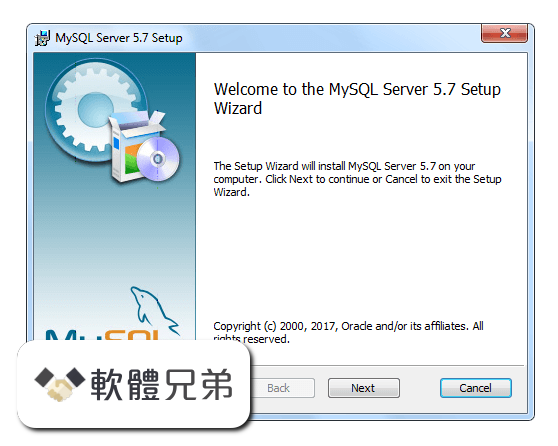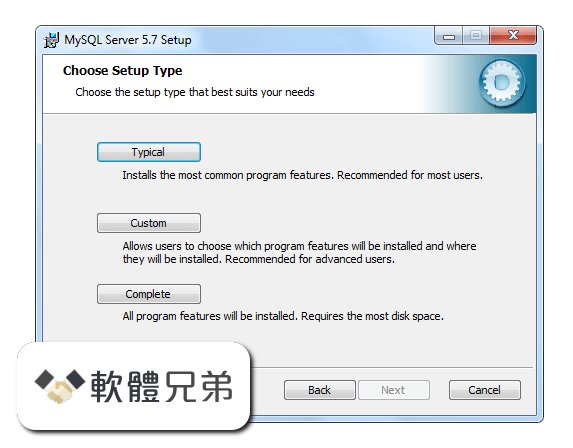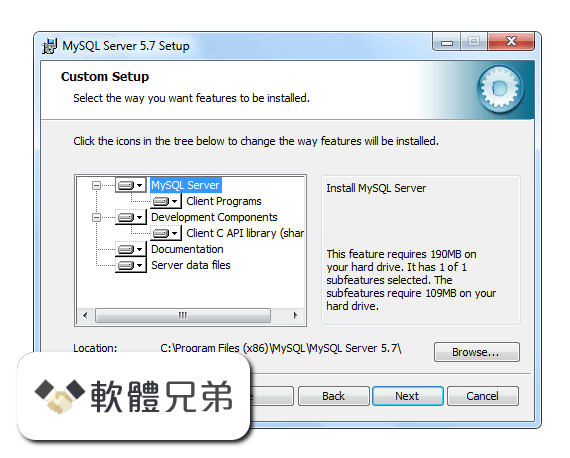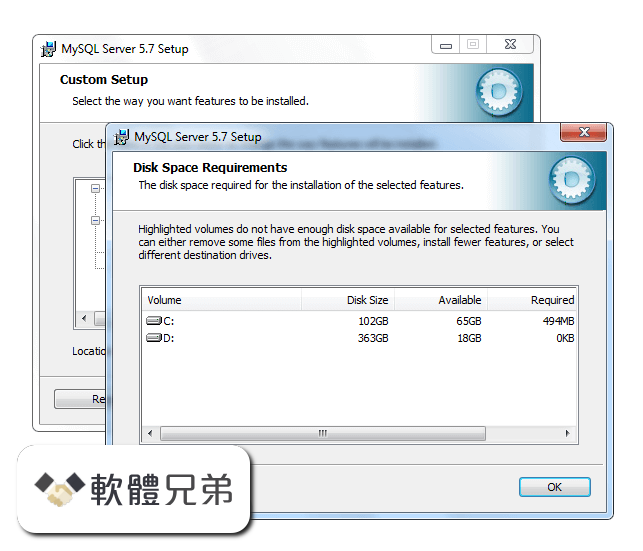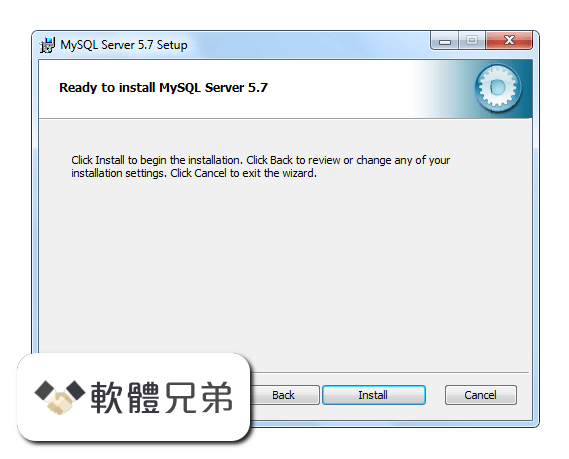|
What's new in this version: Functionality added or changed:
* Important Change: Replication: Previously, incident log events were represented as comments in the output from mysqlbinlog, making them effectively silent when playing back the binlog.
(An incident log event represents an incident that could cause the contents of the database to change without that event being recorded in the binary log.)
This meant that, if the SQL were applied to a server, it could potentially lead to the master and the slave having different data. To make it possible to handle incident log events without breaking applications that expect the previous behavior, the nonsense statement RELOAD DATABASE is added to the SQL output for that incident log event, which causes an error.
To use this functionality currently requires hand editing of the dump file and handling of each case on an individual basis by a database administrator before applying the output to a server. (Bug#44442)
* mysql_upgrade now displays a message indicating the connection parameters it uses when invoking mysqlcheck. (Bug#44638)
* The time zone tables for Windows available at http://dev.mysql.com/downloads/timezones.html have been updated. (Bug#39923)
* The mysqltest program now has a move_file from_file to_file command for renaming files. This should be used in test cases rather than invoking an external command that might be platform specific. (Bug#39542)
Bugs fixed:
* Incompatible Change: The server can load plugins under the control of startup options. For example, many storage engines can be built in pluggable form and loaded when the server starts. In the following descriptions, plugin_name stands for a plugin name such as innodb.
Previously, plugin options were handled like other boolean options (see Section 4.2.3.2, “Program Option Modifiers”). That is, any of these options enabled the plugin:
--plugin_name
--plugin_name=1
--enable-plugin_name
And these options disabled the plugin:
--plugin_name=0
--disable-plugin_name
--skip-plugin_name
However, use of a boolean option for plugin loading did not provide control over what to do if the plugin failed to start properly: Should the server exit, or start with the plugin disabled? The actual behavior has been that the server starts with the plugin disabled, which can be problematic. For example, if InnoDB fails to start, existing InnoDB tables become inaccessible, and attempts to create new InnoDB tables result in tables that use the default storage engine unless the NO_ENGINE_SUBSTITUTION SQL mode has been enabled to cause an error to occur instead.
Now, there is a change in the options used to control plugin loading, such that they have a tristate format:
o --plugin_name=OFF
Do not enable the plugin.
o --plugin_name[=ON]
Enable the plugin. If plugin initialization fails, start the server anyway, but with the plugin disabled. Specifying the option as --plugin_name without a value also enables the plugin.
o --plugin_name=FORCE
Enable the plugin. If plugin initialization fails, do not start the server. In other words, force the server to run with the plugin or not at all.
The values OFF, ON, and FORCE are not case sensitive.
Suppose that CSV and InnoDB have been built as pluggable storage engines and that you want the server to load them at startup, subject to these conditions: The server is allowed to run if CSV initialization fails, but must require that InnoDB initialization succeed. To accomplish that, use these lines in an option file:
[mysqld]
csv=ON
innodb=FORCE
This change is incompatible with the previous implementation if you used options of the form --plugin_name=0 or --plugin_name=1, which should be changed to --plugin_name=OFF or --plugin_name=ON, respectively.
--enable-plugin_name is still supported and is the same as --plugin_name=ON. --disable-plugin_name and --skip-plugin_name are still supported and are the same as --plugin_name=OFF. (Bug#19027)
* Important Change: Replication: BEGIN, COMMIT, and ROLLBACK statements are no longer affected by --replicate-do-db or --replicate-ignore-db rules. (Bug#43263)
* Partitioning: Queries using DISTINCT on multiple columns or GROUP BY on multiple columns did not return correct results with partitioned tables. (Bug#44821)
See also Bug#41136.
* Replication: When using row-based logging, the length of an event for which the field metadata exceeded 255 bytes in size was incorrectly calculated. This could lead to corruption of the binary log, or cause the server to hang. (Bug#42749)
See also Bug#44548, Bug#44672, Bug#44752.
* Replication: The warning Statement is not safe to log in statement format, issued in situations when it cannot be determined that a statement or other database event can be written reliably to the binary log using the statement-based format, has been changed to Statement may not be safe to log in statement format. (Bug#42415)
* Replication: The Query_log_event used by replication to transfer a query to the slave has been refactored. Query_log_event also stores and sends the error code resulting from the execution since it, in some cases, is necessary to execute the statement on the slave as well, which should result in the same error code. The Query_log_event constructor previously worked out for itself the error code using a complex routine, the result of which was often set aside within the constructor itself. This was also involved with at least 2 known bugs relating to invalid errors, and taken as a clear sign that the constructor was not well-designed and needed to be re-written. (Bug#41948)
See also Bug#37145.
* Replication: When stopping and restarting the slave while it was replicating temporary tables, the slave server could crash or raise an assertion failure. This was due to the fact that, although temporary tables were saved between slave thread restarts, the reference to the thread being used (table->in_use) was not being properly updated when restarting, continuing to reference the old thread instead of the new one. This issue affected statement-based replication only. (Bug#41725)
* Use of ROUND() on a LONGTEXT or LONGBLOB column of a derived table could cause a server crash. (Bug#45152)
* DROP USER could fail to drop all privileges for an account if the PAD_CHAR_TO_FULL_LENGTH SQL mode was enabled. (Bug#45100)
* GROUP BY on a constant (single-row) InnoDB table joined to other tables caused a server crash. (Bug#44886)
* ALTER TABLE on a view crashed the server. (Bug#44860)
* Index Merge followed by a filesort could result in a server crash if sort_buffer_size was not large enough for all sort keys. (Bug#44810)
*
UNCOMPRESSED_LENGTH() returned a garbage result when passed a string shorter than 5 bytes. Now UNCOMPRESSED_LENGTH() returns NULL and generates a warning. (Bug#44796)
* Several Valgrind warnings were silenced. (Bug#44774, Bug#44792)
* Selecting RAND(N) function where N is a column of a constant table (table with a single row) failed with a SIGFPE signal. (Bug#44768)
* The PASSWORD() and OLD_PASSWORD() functions could read memory outside of an internal buffer when used with BLOB arguments. (Bug#44767)
* Conversion of a string to a different character set could use the same buffer for input and output, leading to incorrect results or warnings. (Bug#44743, Bug#44766)
* mysqld_safe could fail to find the logger program. (Bug#44736)
* Code that optimized a read-only XA transaction failed to reset the XID once the transaction was no longer active. (Bug#44672)
* A Valgrind warning related to transaction processing was silenced. (Bug#44664)
* innochecksum could incorrectly determine the input file name from the arguments. (Bug#44484)
* Incorrect time was reported at the end of mysqldump output. (Bug#44424)
*
Caching of GROUP BY expressions could lead to mismatches between compile-time and runtime calculations and cause a server crash. (Bug#44399)
* Lettercase conversion in multibyte cp932 or sjis character sequences could produce incorrect results. (Bug#44352)
* InnoDB was missing DB_ROLL_PTR information in Table Monitor COLUMNS output. (Bug#44320)
* Assertion failure could occur for duplicate-key errors in INSERT INTO ... SELECT statements. (Bug#44306)
* On 64-bit Windows systems, myisamchk did not handle key_buffer_size values larger than 4GB. (Bug#43940)
* For user-defined utf8 collations, attempts to store values too long for a column could cause a server crash. (Bug#43827)
* Invalidation of query cache entries due to table modifications could cause threads to hang inside the query cache with state “freeing items”. (Bug#43758)
* EXPLAIN EXTENDED could crash for UNION queries in which the last SELECT was not parenthesized and included an ORDER BY clause. (Bug#43612)
* Multiple-table updates for InnoDB tables could produce unexpected results. (Bug#43580)
* For DELETE statements with ORDER BY var, where var was a global system variable with a NULL value, the server could crash. (Bug#42778)
* Builds linked against OpenSSL had a memory leak in association with use of X509 certificates. (Bug#42158)
* There was a race condition when changing innodb_commit_concurrency at runtime from zero to nonzero or from nonzero to zero. Now this variable cannot be changed at runtime from zero to nonzero or vice versa. The value can still be changed from one nonzero value to another. (Bug#42101)
* SELECT ... INTO @var could produce values different from SELECT ... without the INTO clause. (Bug#42009)
* mysql_zap did not work on Mac OS X. (Bug#41883)
* Shared-memory connections did not work in Vista if mysqld was started from the command line. (Bug#41190)
* For views created with a column list clause, column aliases were not substituted when selecting through the view using a HAVING clause. (Bug#40825)
* A multiple-table DELETE involving a table self-join could cause a server crash. (Bug#39918)
* Creating an InnoDB table with a comment containing a '#' character caused foreign key constraints to be omitted. (Bug#39793)
* The mysql option --ignore-spaces was nonfunctional. (Bug#39101)
* If a query was such as to produce the error 1054 Unknown column '...' in 'field list', using EXPLAIN EXTENDED with the query could cause a server crash. (Bug#37362)
* In the mysql client, using a default character set of binary caused internal commands such as DELIMITER to become case sensitive. (Bug#37268)
* If the MYSQL_HISTFILE environment variable was set to /dev/null, the mysql client overwrote the /dev/null device file as a normal file. (Bug#34224)
* mysqld_safe mishandled certain parameters if they contained spaces. (Bug#33685)
* mysqladmin kill did not work for thread IDs larger than 32 bits. (Bug#32457)
* The InnoDB adaptive hash latch is released (if held) for serveral potentially long-running operations. This improves throughput for other queries if the current query is removing a temporary table, changing a temporary table from memory to disk, using CREATE TABLE ... SELECT, or performing a MyISAM repair on a table used within a transaction. (Bug#32149)
* Several client programs failed to interpret --skip-password as “send no password.” (Bug#28479)
* Output from mysql --html did not encode the <, >, or & characters. (Bug#27884)
* mysql_convert_table_format did not prevent converting tables to MEMORY or BLACKHOLE tables, which could result in data loss. (Bug#27149)
MySQL 5.1.36 相關參考資料
Download MySQL 5.1.36 for Windows
2022年10月28日 — Download MySQL 5.1.36 for Windows. Fast downloads of the latest free software! Click now.
https://filehippo.com
Download MySQL Community Server (Archived Versions)
5.1.36, 5.1.35, 5.1.34, 5.1.33, 5.1.32, 5.1.31, 5.1.30, 5.1.5a alpha, 5.0.96, 5.0.95, 5.0.92, 5.0.91, 5.0.90, 5.0.89, 5.0.88, 5.0.87, 5.0.86, 5.0.85, 5.0.84 ...
https://downloads.mysql.com
Download MySQL Community Server 5.1.36 for Windows
MySQL Community Server 5.1.36 · File Size: 35.73 MB · Date Released: Add info · Works on: Windows 2000 / Windows 7 / Windows 8 / Windows 98 / Windows Vista / ...
http://www.oldversion.com
Download MySQL Installer (Archived Versions)
Please note that these are old versions. New releases will have recent bug fixes and features! To download the latest release of MySQL Installer, please visit ...
https://downloads.mysql.com
MySQL ConnectorJ - (Archived Versions)
5.1.36, 5.1.35, 5.1.34, 5.1.33, 5.1.32, 5.1.31, 5.1.30, 5.1.29, 5.1.28, 5.1.27, 5.1.26, 5.1.25, 5.1.24, 5.1.23, 5.1.22, 5.1.21, 5.1.20, 5.1.19, 5.1.18, 5.1.17 ...
https://downloads.mysql.com
MySQL-5.1.36源码版本安装
MySQL-5.1.36源码版本安装.
http://m.blog.itpub.net
mysql-connector-java » 5.1.36
MySQL Connector/J is a JDBC Type 4 driver, which means that it is pure Java implementation of the MySQL protocol and does not rely on the MySQL client ...
https://mvnrepository.com
mysql-connector-java-5.1.36-bin.jar百度云盘提取原创
2022年3月18日 — java连接mysql数据库的jar包,最新纯净正版。直接将mysql-connector-java-5.1.47-bin.jar导入项目中即可使用。
https://blog.csdn.net
Oracle Mysql version 5.1.36 : Security vulnerabilities, CVEs
CVE-2023-21980. Vulnerability in the MySQL Server product of Oracle MySQL (component: Client programs). Supported versions that are affected are 5.7.41 and ...
https://www.cvedetails.com
Solved: MySQL 5.1.36 Community Edition - VOX
2024年2月19日 — Please your help with this question, MySQL 5.1.36 Community Edition is supported by NBU? Specifically for the Community Edition part, since the ...
https://vox.veritas.com
|
